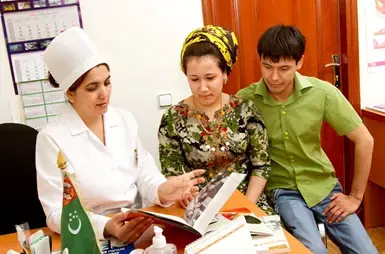SOFIA – As world leaders gear up to adopting a new global development agenda later this year, participants at a regional conference today affirmed that people and their rights must be at the heart of development for the Eastern Europe and Central Asia region, and that for this, universal access to sexual and reproductive health must be a top priority.
‘A person-centred approach to the world’s development agenda is simply essential,’ said Kate Gilmore, UNFPA’s Deputy Executive Director. ‘Without putting people at the centre - enabled and supported through the realisation of their rights to, for example, health and education - they will not realise their full potential. Without their fuller potential realised, their capacities to be productive, engaged, and constructive contributors to the sustainability and resilience of their communities and economies is undermined.’
Significant progress has been made under the Millennium Development Goals, Gilmore stressed, noting, for example, a more than 50 per cent reduction in maternal mortality in Eastern Europe and Central Asia: ‘But this progress hides a troubling truth – that the fruits of development’s gains have not been fair, nor just, nor distributed evenly.’
To be ready to meet the current major demographic transitions, such as population ageing, governments must invest in young people, the Deputy Executive Director said. ‘We must engage more directly, empower effectively, and enable more comprehensively the greatest asset of our age, that most critical of human capital – those who today are adolescents.’
Young people have pressing sexual and reproductive health needs, and the failure to meet these needs is not a result of random misfortune or risk-taking, but ‘the product of decisions by the non-young, decisions taken by adults, that cause rights to be derailed’, Gilmore said.
The two-day conference will review the progress made in Eastern Europe and Central Asia since the 1994 International Conference on Population and Development, and discuss the way forward in ensuring universal access to sexual and reproductive health in the region.




